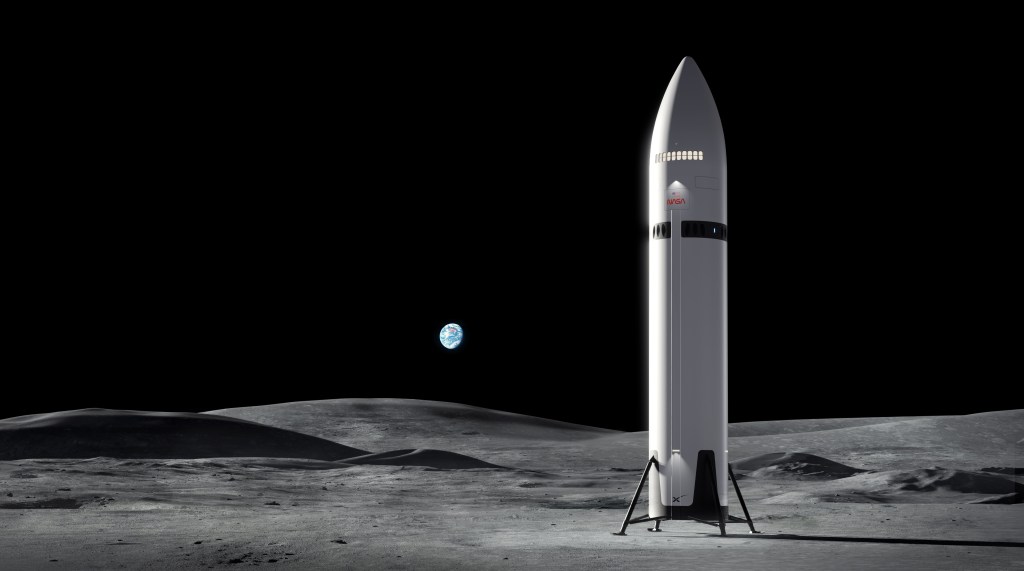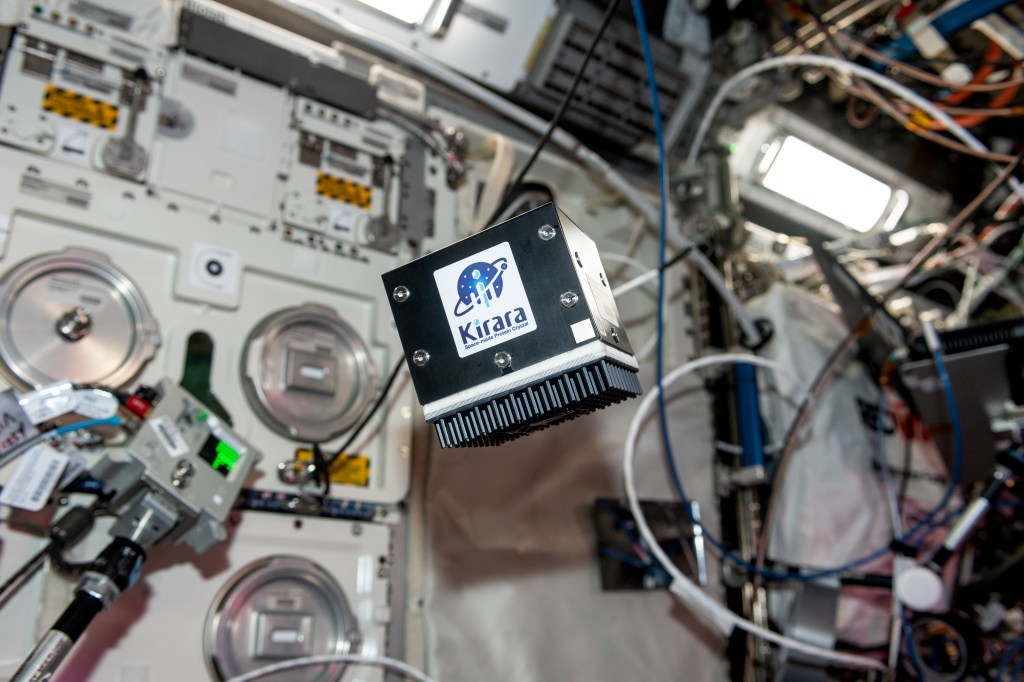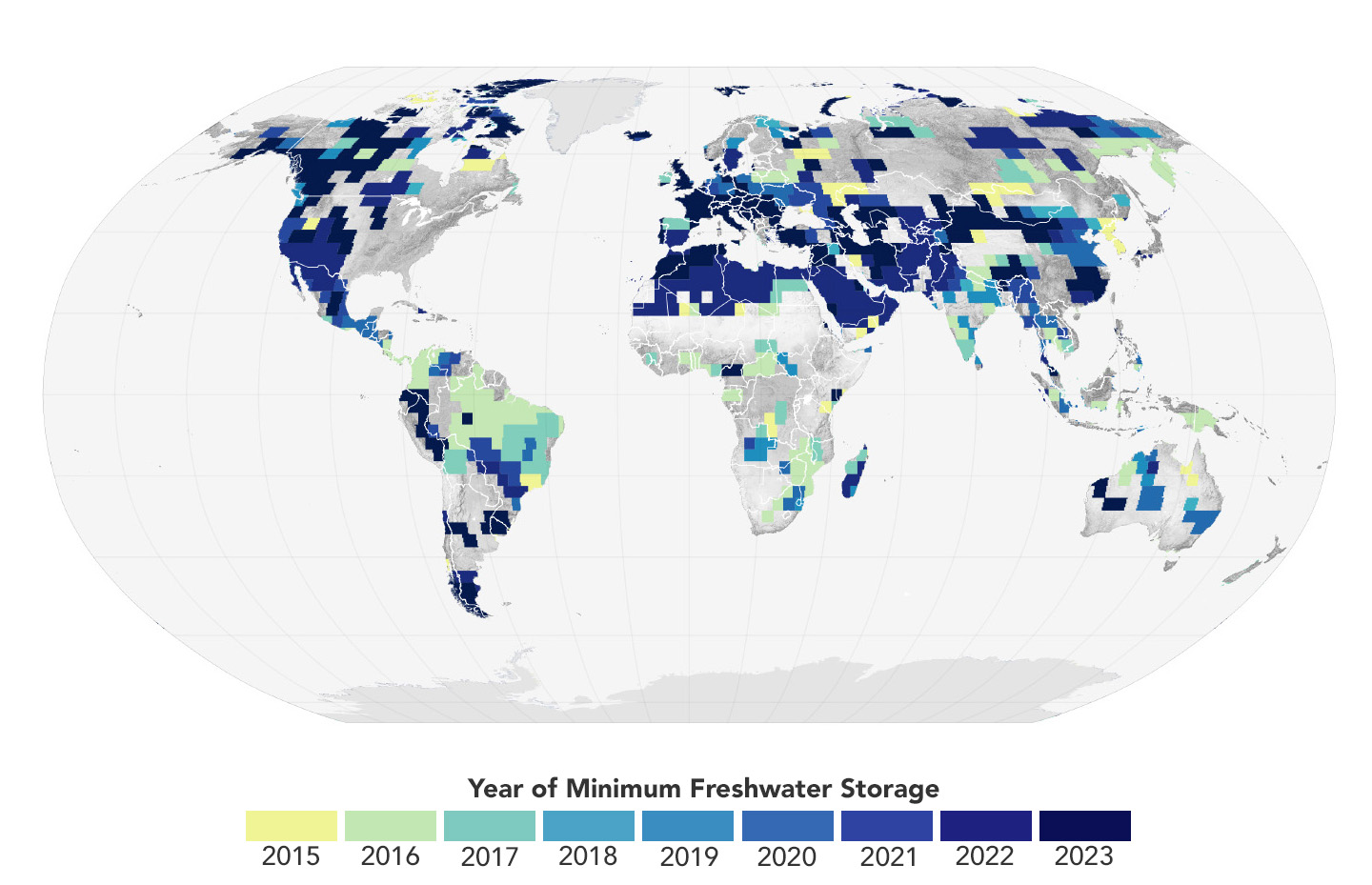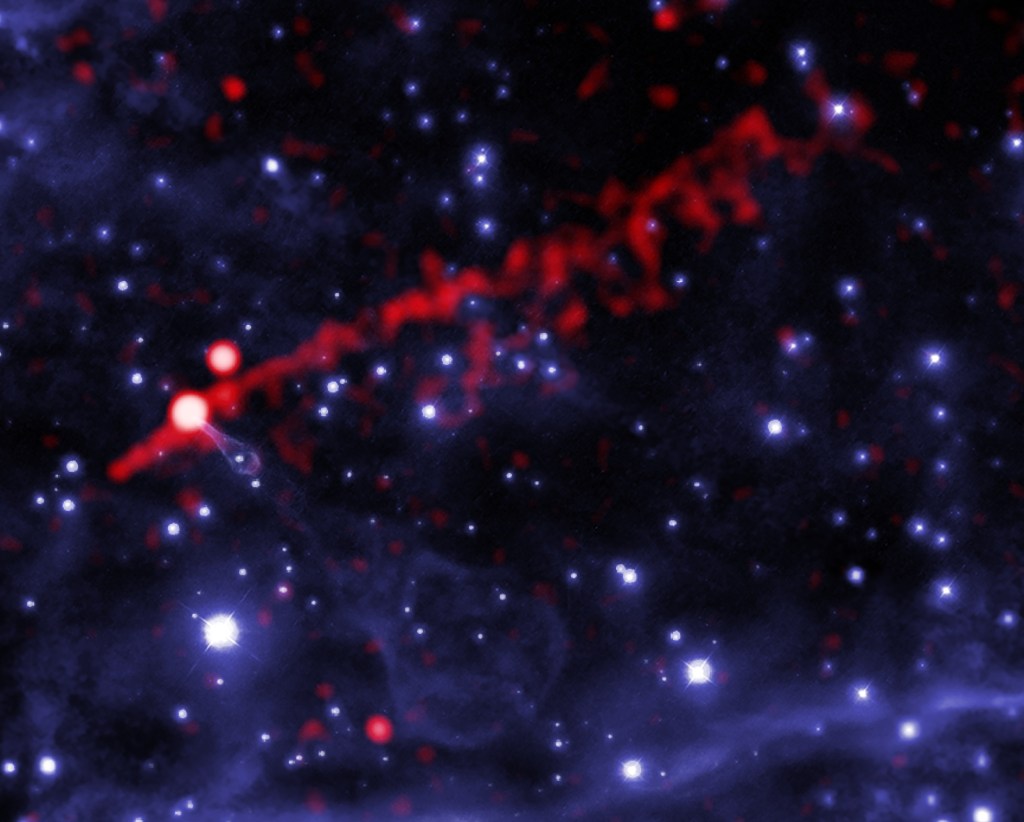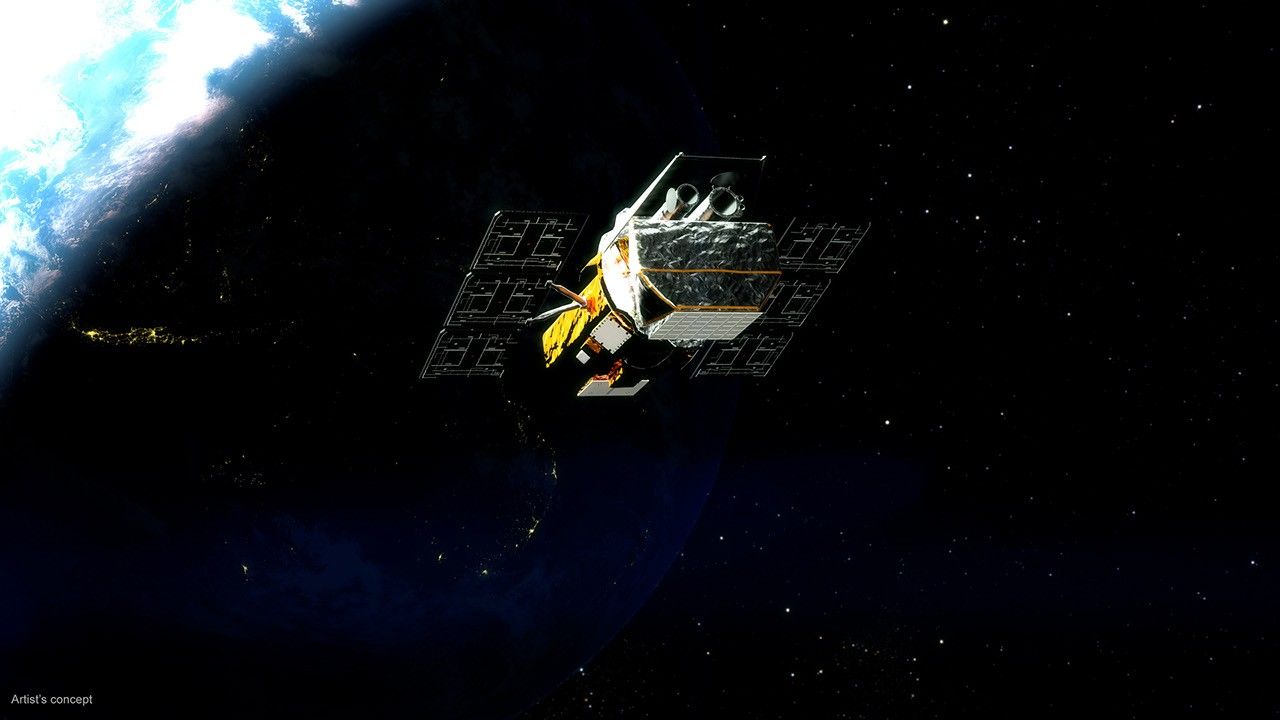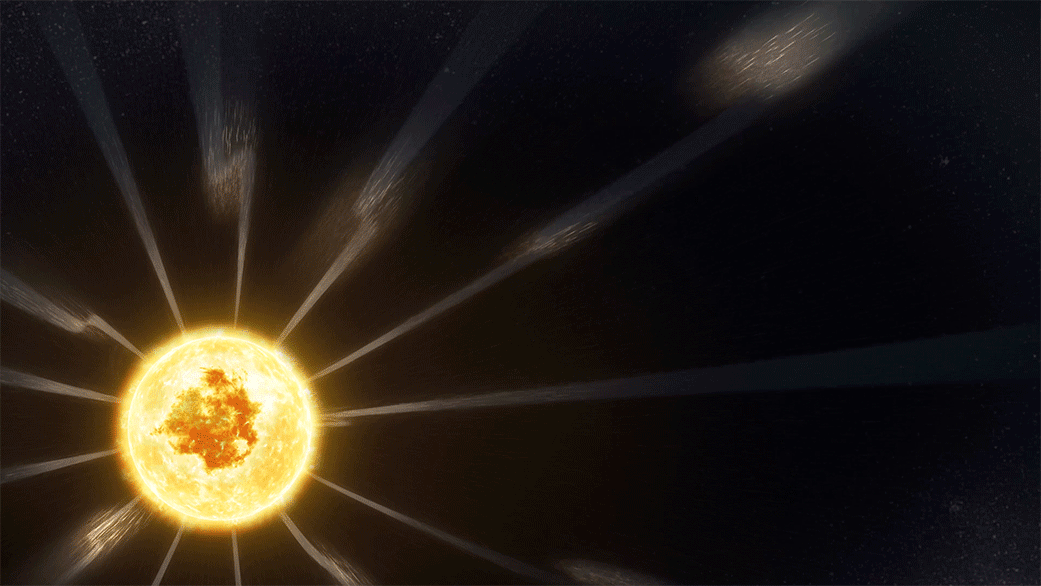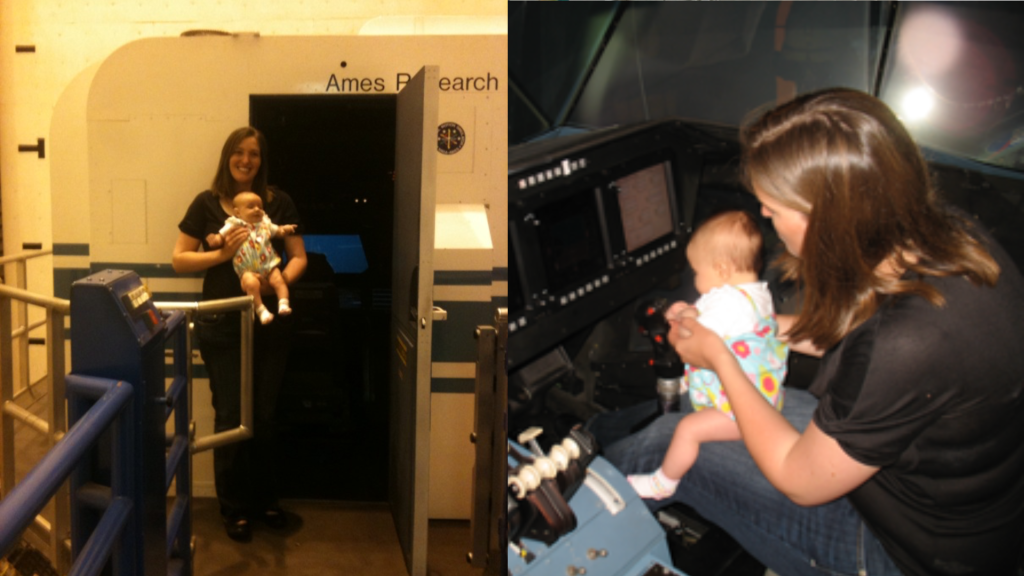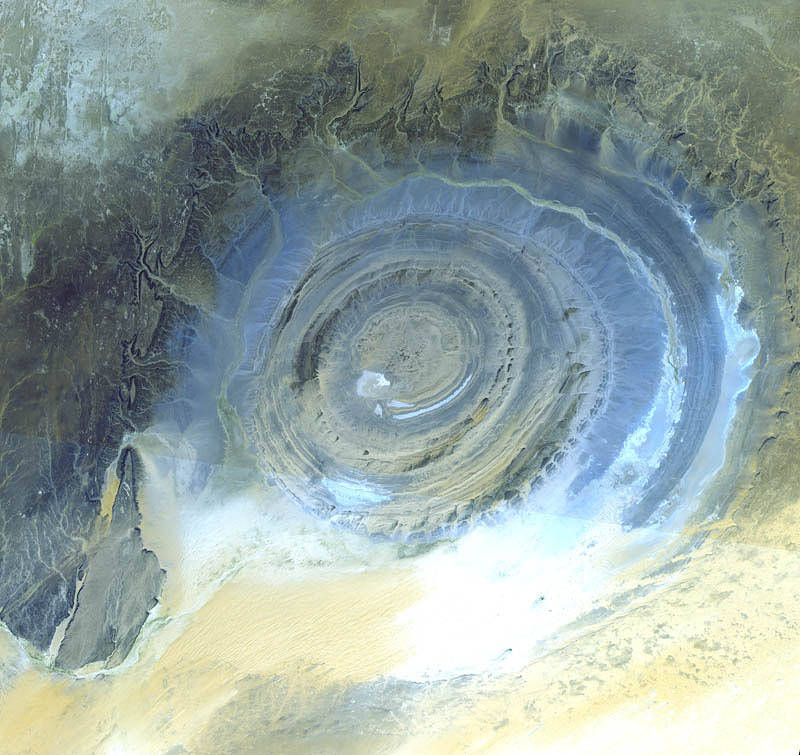
This prominent circular feature in the Sahara desert of Mauritania has attracted attention since the earliest space missions because it forms a conspicuous bull's-eye in the otherwise rather featureless expanse of the desert. Described by some as looking like an outsized fossil in the desert, the structure has a diameter of almost 30 miles.
This prominent circular feature in the Sahara desert of Mauritania has attracted attention since the earliest space missions because it forms a conspicuous bull’s-eye in the otherwise rather featureless expanse of the desert. Described by some as looking like an outsized fossil in the desert, the structure, which has a diameter of almost 30 miles, has become a landmark for shuttle crews. Initially interpreted as a meteorite impact structure because of its high degree of circularity, it is now thought to be merely a symmetrical uplift that has been laid bare by erosion. Paleozoic quartzites form the resistant beds outlining the structure.Image Credit: NASA/GSFC/MITI/ERSDAC/JAROS, and U.S./Japan ASTER Science Team





